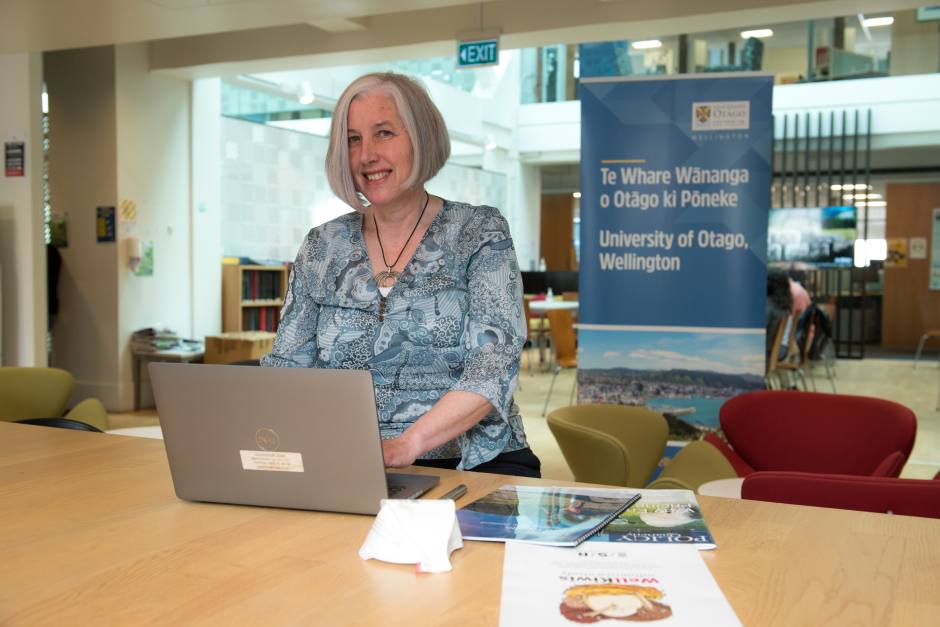
Amanda Kvalsvig. Photo taken by Lance Lawson
Department of Public Health epidemiologist Associate Professor Amanda Kvalsvig has shared her story of receiving cochlear implants as part of events to commemorate 20 years of the Southern Cochlear Implant Programme.
She says her crucial work in public health and as Deputy Director of the University of Otago’s COVID-19 Research Collaborative during the pandemic was made possible because of her cochlear implants.
“When the pandemic arrived, every country was short of epidemiologists because we’re such a small workforce. New Zealand would have had one fewer epidemiologist if I hadn’t had implantation, there’s no question about it. The kind of work I do means I need to talk to people and communicate verbally at a high technical level every day.
“During the highly intense initial phase of the pandemic I was very, very busy and it was good to able to contribute.”
Associate Professor Kvalsvig was 19 when she first noticed she was losing her hearing.
During her 20s her hearing declined to the point where she knew she could not continue in clinical paediatrics, and she retrained in epidemiology.
The cause of her hearing loss was never found and Associate Professor Kvalsvig stopped taking tests to instead concentrate on how to live with her deafness.
In the United Kingdom she was placed on a cochlear implant waiting list, but then moved to Singapore, and later to New Zealand.
“I developed good adaptation to my hearing loss. I was functioning well in a very busy, very demanding job. I think people didn’t quite grasp how much of my hearing I had lost.”
She has always been musical – singing, playing the piano and violin, and playing in orchestras. She believes that intense listening experience helped her make the best of the little she could hear and to judge how to modulate her voice.
In 2007 she received her first cochlear implant in Christchurch. At the time she had a toddler and a nine-month-old child.
Hearing music again was a transformative difference.
“They switched on and I suddenly heard a major arpeggio in the tones that they used. It was the most extraordinary moment.”
She moved to Melbourne with her husband Chris, and her children Claire, Alex and Nick and in 2013 she had a bilateral cochlear implant.
After that second switch on, she recognised a Beatles song in the car on the way home.
“Every single day I am grateful for my cochlear implants and I have never taken them for granted.”
An audiologist once teased Associate Professor Kvalsvig that she was a sound junkie and she agrees that totally sums her up.
Her story is included in the Southern Cochlear Implant Programme’s commemorative book Hear our stories – Celebrating 20 years https://scip.co.nz/hear-our-stories/
The Southern Cochlear Implant Programme (SCIP) is a charity providing care to more than 1,200 adults and children throughout the South Island and as far north as Taupo.